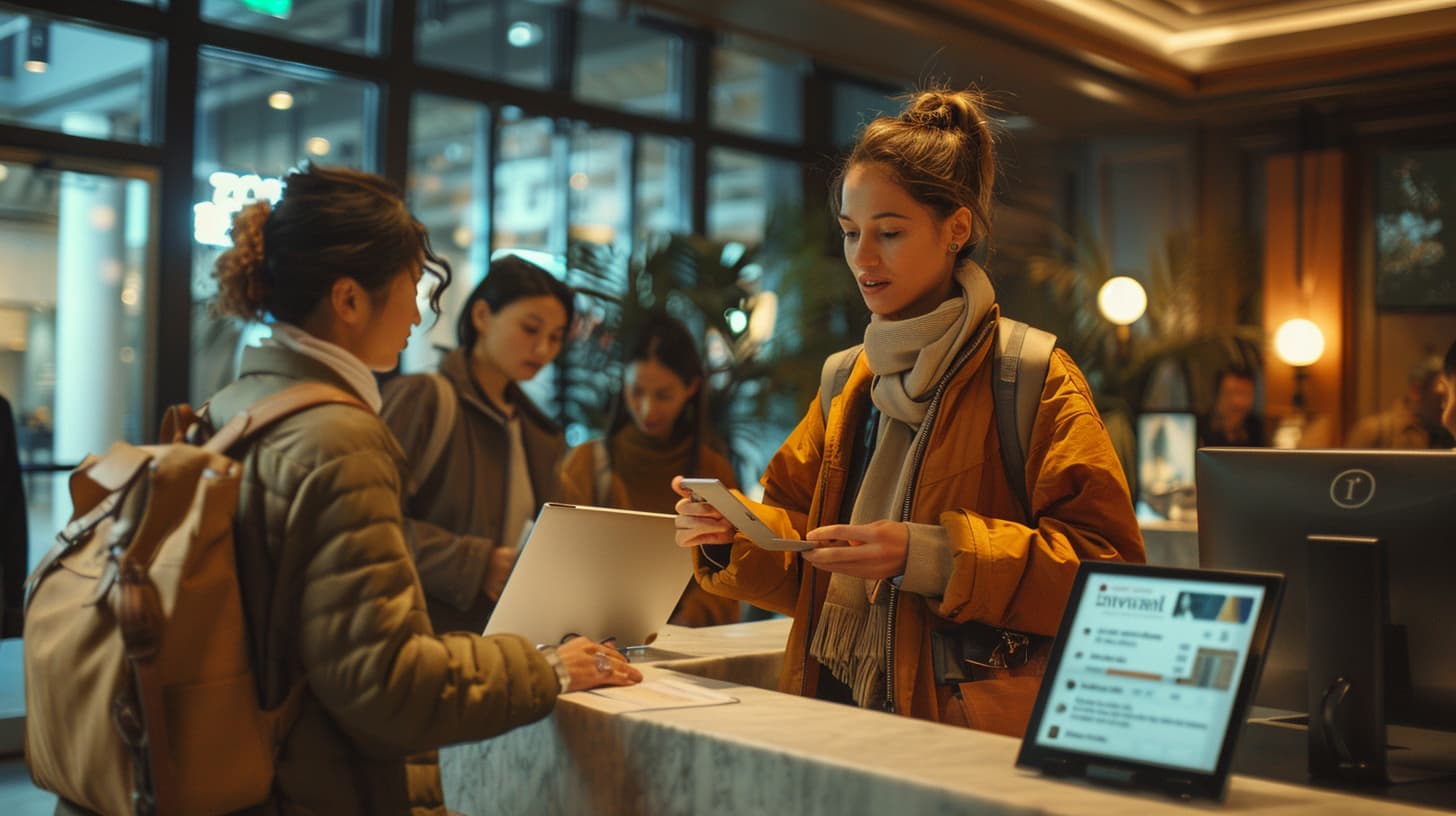With the rise of the sharing economy, traditional barriers to income generation are lowering as platforms like Airbnb provide an avenue for homeowners to rent out their homes to travelers and tourists.
Whether as a means to supplement income, or to offer a unique travel experience from a local’s perspective, renting your home on Airbnb can be a profitable venture. However, understanding how Airbnb and its policies work, prepping your property to appeal to renters, and creating a persuasive listing are all necessary steps required to successfully navigate through this process.
Understanding Airbnb and its Policies
Understanding Airbnb and Its Working
Airbnb is an online marketplace that allows individuals to rent out their homes, rooms, or even shared spaces to guests on a short-term basis. As a host, you can list your property for free, set rental rates, availability, rules, and restrictions, among other things. Guests browse and book listings they prefer, after which transactions are done through the Airbnb platform.
The Renting Process on Airbnb
To rent out your house on Airbnb, create an account and proceed with providing the necessary details for creating your listing such as the type of property, the number of guests it can accommodate, availability, pricing, and house rules. Airbnb will then give a suggested price which you can adjust.
Make sure to upload quality photos and write a detailed description of your place and the surrounding areas to attract potential guests. After each guest’s stay, both the host and guest review each other to build trust within the Airbnb community.
Airbnb’s Policies
As a host, you must understand Airbnb’s policies to ensure a smooth transaction. First, you must adhere to all local laws and regulations about home sharing. Also, Airbnb has their Anti-Discrimination Policy which encourages hosts to treat everyone in the Airbnb community—regardless of their race, religion, national origin, ethnicity, disability, sex, gender identity, sexual orientation, or age—with respect designed to foster a world where everyone can belong anywhere.
Understanding Host Insurance Coverage
Airbnb provides Host Protection Insurance that provides primary liability coverage for up to $1 million per occurrence in the event of a third-party claim for bodily injury or property damage related to an Airbnb stay. This coverage is subject to certain conditions, limitations, and exclusions.
Reviewing Your Homeowner’s Insurance
It’s crucial to review your homeowner’s insurance policy to see if it covers short-term rentals. This is because while Airbnb’s Host Protection Insurance provides coverage, it may not cover all potential liabilities. Some homeowner’s insurance may not cover incidents related to renting out your home, while others may offer an endorsement or an additional policy to cover short-term rentals. It’s advisable to speak with your insurance company or legal advisor to understand what is covered and what is not.

Preparing Your Home for Renters
Preparing Your Home for Airbnb
Before listing your house on Airbnb, the first step is to declutter your space. Remove personal items, excess furniture, and unnecessary decorations. This is not only to create a welcoming environment for your guests but also to protect your personal belongings. Maintain a clean, open space that allows guests to navigate easily and comfortably.
Deciding Rooms for Rent
Designate which parts of the house will be available for guests’ use. Depending on your comfort level, you may choose to rent out the entire house or limit it to certain rooms. These decisions should be considered carefully, as they will directly impact the rental price. While a larger space like a full house can provide more income, it also requires extra cleaning, maintenance, and might mean you have to find an alternative living arrangement.
Adding Amenities
Adding amenities to your Airbnb will increase its appeal, maximize profits from Airbnb, and increase competitiveness among potential renters. Include basics like Wi-Fi, a fully equipped kitchen, a TV, and clean towels and linens. But also consider special extras, such as offering a home gym, a hot tub, or free parking if available.
Cleaning Your Home
One of the things guests value most in vacation rentals is cleanliness. Ensure your home is spotless before listing it on Airbnb. If you lack the time or skill to do a thorough cleaning, consider hiring a professional cleaning service. Pay particular attention to high-traffic areas such as the kitchen, bathroom, and sleeping areas. Always clean in detail after each guest leaves and before the new guest arrives.
Listing Your House on Airbnb
When you’re ready to list, head over to the Airbnb site and create a new account or login if you already have one. Click on the option to “Host a Home” and follow the prompts. They will guide you through the process of listing your home, setting a price, and adding photos and descriptions of your space. When writing your description, be honest and accurate, emphasize the unique aspects of your home, and clearly list the amenities you have added. Remember your listing is the first impression potential guests will have of your home, so make it count!
Remember, renting out your home on Airbnb requires ongoing involvement.
Be prepared to respond quickly to inquiries, resolve any issues that come up, and update your listing as necessary to reflect changes or improvements to your space.

Creating a Listing, Pricing, and Marketing
Taking High-Quality Pictures
To take high-quality pictures of your property, ensure that the rooms are clean and well-lit, and all personal items are tucked away. A wide-angle lens will help capture the entirety of a room, creating a more immersive feel. Try different angles to give potential renters a varied perspective of your home. High-quality photos are more likely to catch the eye of potential renters scrolling through listings. Make sure to also highlight any unique or attractive features like a fire pit, pool, patio, or beautiful view.
Writing An Engaging Description
An engaging description must represent accurate aspects of your property while painting a vivid picture that allows potential customers to envision staying there. Highlight amenities that make your property special, such as a hot tub, a fully equipped kitchen, or proximity to popular attractions. Keep it concise, but don’t omit important details. Be sure to include any rules, such as no pets or a limit on guests, to set clear expectations.
Setting Competitive Prices
Research is key in setting competitive prices. Browse Airbnb listings in your area to understand the pricing landscape. Focus on properties similar to your own, taking into account factors like location, home size, and amenities offered. Use dynamic pricing tools available on the Airbnb platform, which adjust your rates based on supply and demand trends. Take into account expenses involved in maintaining your property, including cleaning, repairs, and insurance, as well as utility and property tax costs.
Marketing Your Listing
To reach a broader audience, use a multifaceted approach to market your Airbnb listing. This can include sharing your listing on social media platforms like Facebook or Instagram, which enables your network to further share with theirs. If your home is located in a popular tourist area, consider advertising on local travel websites or in brochures. Providing exceptional service can lead to stellar reviews, which can dramatically increase your visibility on Airbnb. Creating partnerships with local businesses, such as restaurants or tour companies, can also enhance the appeal of your listing.
Understanding Your Local Market
Understanding your local market can inform your pricing strategy and marketing decisions. Regularly review local news and tourism updates for factors that could influence demand, such as concerts, sporting events, or conferences. Recognize seasonal trends in your area – some locations might attract more visitors in summer months, while others might be popular around winter holidays.
Remember, successful renting on Airbnb doesn’t happen overnight. It requires regular adjustments based on guest feedback and changes in your local market.
It’s clear that venturing into the Airbnb rental market requires an understanding of the platform’s operations and policies, careful preparation of your property, and a thoughtful strategy in listing, pricing, and marketing. By ensuring your home is attractive and competitive within your local market, listing your property appropriately, and attentively managing your Airbnb hosting responsibilities, you can optimize your rentals for success. By embracing the opportunities and implementing the guidance outlined, you’re well on your way to becoming a competent and profitable Airbnb host.



